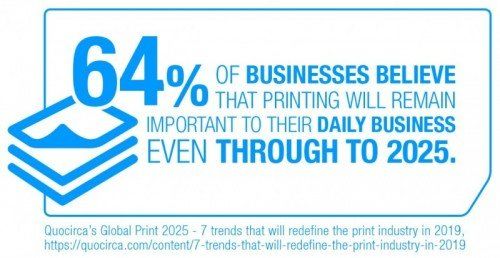Today’s IT environments are being irrevocably changed by megatrends such as big data and increased mobility, yet printing infrastructures have often been left behind. Many businesses are still reliant on a legacy patchwork of printing and imaging devices that don’t work well together and that creak under the weight of ever more challenging information demands. Even in increasingly digitised environments, businesses still rely on paper-based processes, with 64% of businesses believing that printing will remain important to their daily business – even up until the year 2025[1]. However, without itself evolving, print risks to become a costly and frustrating bottleneck. In response to this, Managed Print Services (MPS) has emerged as a pathway to unite paper-based and digital processes with a consistent level of efficiency.

Managed Print Services – taking on diverse business challenges
Every company is different and the extent of digitalisation can vary enormously from company to company. However, across the board, the challenge of legacy print services is well known: businesses struggle with the cost, inefficiency and administrative overhead of maintaining solutions from multiple vendors while at the same time seeking to reduce waste and tighten security. Hence, companies are placing an increasing emphasis on optimising printing services. Today, just under a quarter (23%) agree that MPS play a very important role in digital transformation, but 54% expect it to do so in two years’ time.[2]

However, just as customers’ challenges have evolved, print manufacturers also have to adapt. “Print vendors can no longer continue to operate within old paradigms – they must embrace new ways of thinking about their companies, employees, customers and the role they play in the changing digital landscape”, researcher Quocirca explains.[3] Accordingly, their need to develop innovative software and service offerings to support and extend their hardware solutions is omnipresent. Even so, while most vendors have expanded their digital workplace portfolios to include IT services, Quocirca notes that some traditional MPS providers are struggling “to deliver successful solutions due to the sheer complexity of workflow automation”[4]. Additionally, the increasing volume and sophistication of cyber-security threats targeting the Internet of Things is focusing minds on the critical nature of security in MPS.
https://quocirca.com/wp-content/uploads/2018/09/Quocirca-MPS-2018-Summary-Report-Web.pdf



